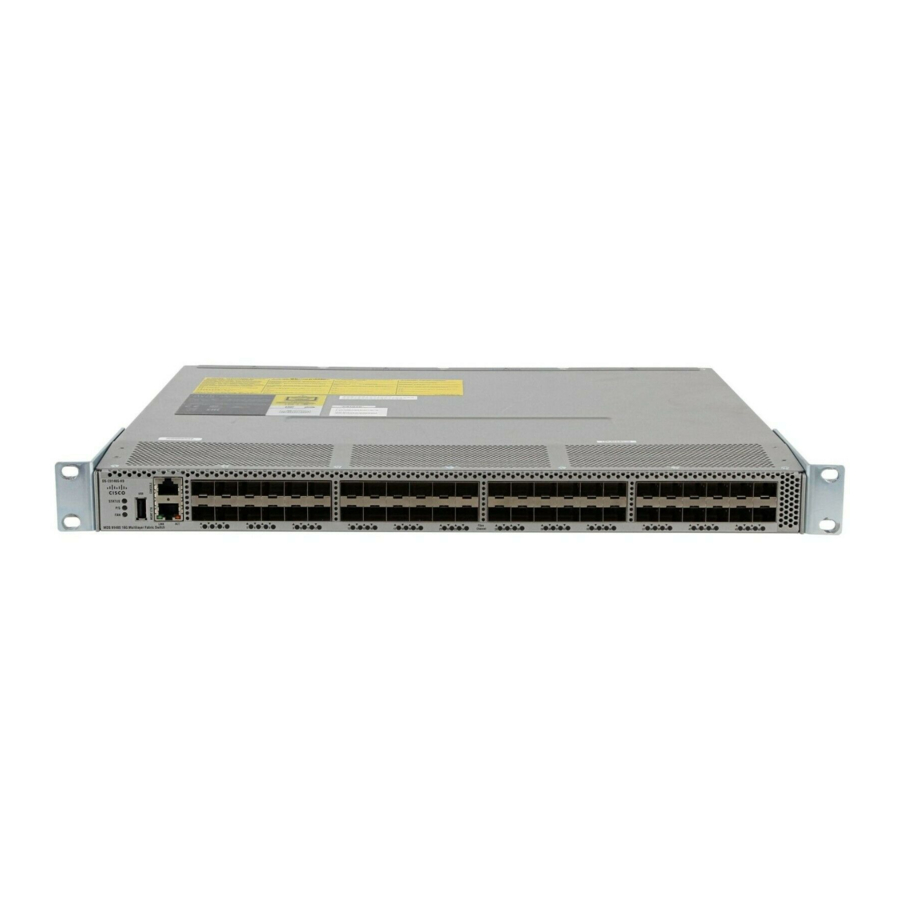S e n d d o c u m e n t a t i o n c o m m e n t s t o m d s f e e d b a c k - d o c @ c i s c o . c o m
Upgrading an MDS 9222i Switch with SANTap or Invista is Provisioned on the
SSM
On an MDS 9222i switch, if SANTap or Invista is provisioned on a Storage Services Module (SSM) in
slot 2, then an In Service Software Upgrade (ISSU) to NX-OS Release 4.2(1a) is not supported. The
upgrade to NX-OS Release 4.2(1a) is supported if you set boot variables, save the configuration, and
reload the switch. If the switch is running SAN-OS Release 3.3(1a) or earlier, first upgrade to SAN-OS
Release 3.3(1c) and then upgrade to NX-OS Release 4.2(1a).
Enabling Telnet Required After an Upgrade
Following an upgrade from SAN-OS 3.x to NX-OS 4.x, you need to enable the Telnet server if you
require a Telnet connection. As of MDS NX-OS Release 4.1(1b), the Telnet server is disabled by default
on all switches in the Cisco MDS 9000 Family. In earlier releases, the Telnet server was enabled by
default.
Upgrading Effect on VSAN 4079
If you are upgrading from a SAN-OS Release 3.x to NX-OS Release 4.2(1a), and you have not created
VSAN 4079, the NX-OS software will automatically create VSAN 4079 and reserve it for EVFP use.
If VSAN 4079 is reserved for EVFP use, the switchport trunk allowed vsan command will filter out
VSAN 4079 from the allowed list, as shown in the following example:
switch(config-if)# switchport trunk allowed vsan 1-4080
1-4078,4080
switch(config-if)#
If you have created VSAN 4079, the upgrade to NX-OS Release 4.2(1a) will have no affect on VSAN
4079.
If you downgrade after NX-OS Release 4.2(1a) creates VSAN 4079 and reserves it for EVFP use, the
VSAN will no longer be reserved.
Upgrading with IVR Enabled
An Inter-Switch Link (ISL) flap resulting in fabric segmentation or a merge during or after an upgrade
from Cisco MDS SAN-OS Release 2.0(x) to a later image where IVR is enabled might be disruptive.
Some possible scenarios include the following:
•
•
•
If this problem occurs, syslogs indicate a failure and the flapped ISL could remain in a down state
because of a domain overlap.
OL-19964-02
FCIP connection flapping during the upgrade process resulting in fabric segmentation or merge.
ISL flap results in fabric segmentation or merge because of hardware issues or a software bug.
ISL port becomes part of PCP results in fabric segmentation or merge because of a port flap.
Cisco MDS 9000 Family Release Notes for Cisco MDS NX-OS Release 4.2(1a)
Upgrading Your Cisco MDS NX-OS Software Image
19

